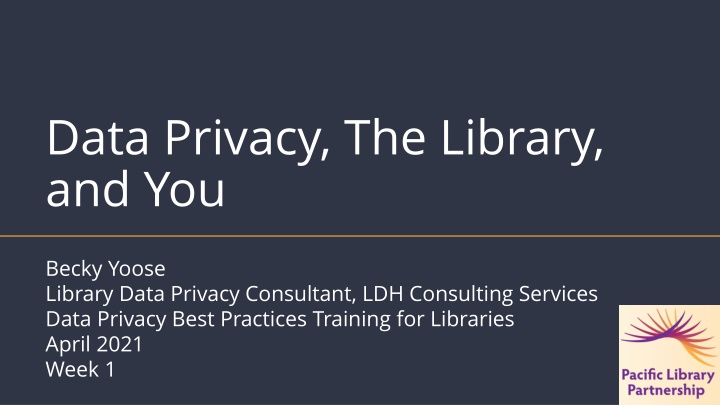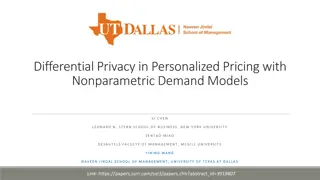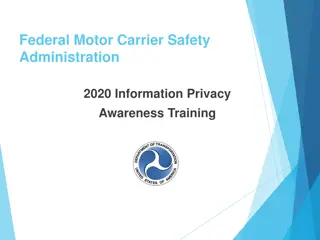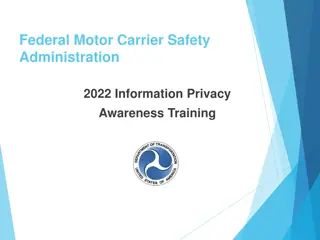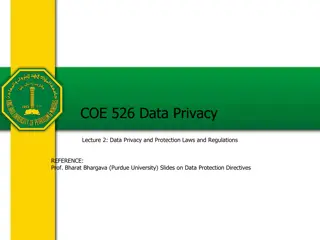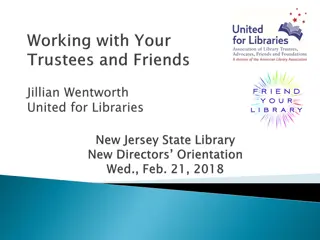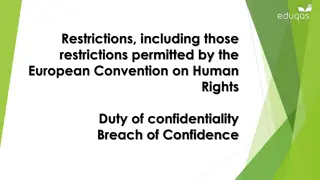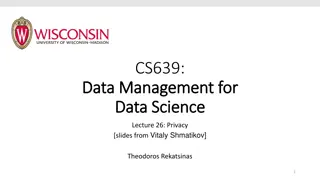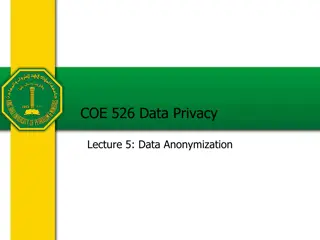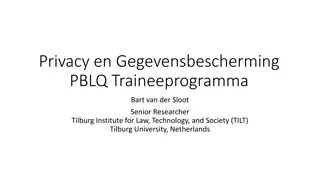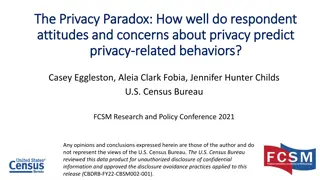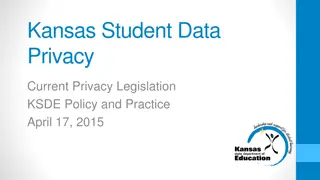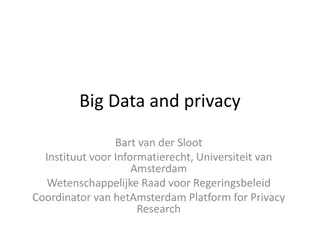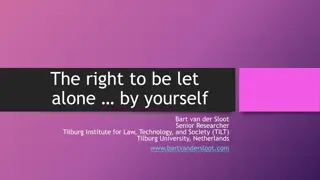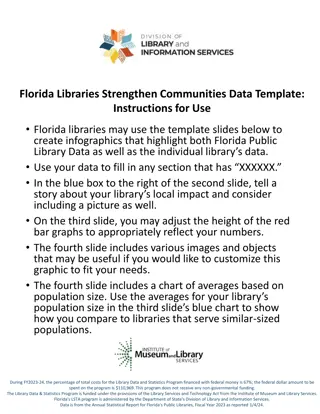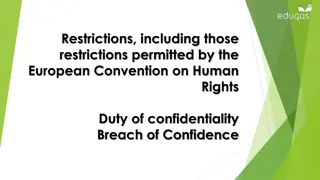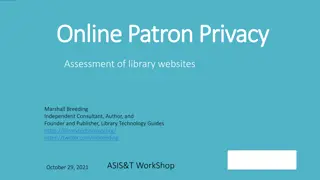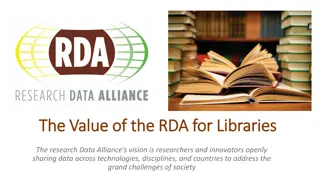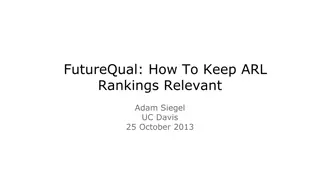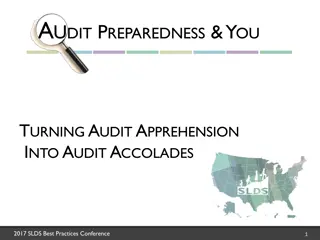Data Privacy Best Practices Training for Libraries
Explore a comprehensive data privacy training program for libraries led by Becky Yoose, a renowned Library Data Privacy Consultant. Supported by the U.S. Institute of Museum and Library Services, this training covers privacy fundamentals, current issues, risk assessment, vendor relations, patron privacy, and creating a culture of privacy. Engage in discussions, exercises, and online sessions over four weeks to enhance your library's data privacy practices.
Download Presentation

Please find below an Image/Link to download the presentation.
The content on the website is provided AS IS for your information and personal use only. It may not be sold, licensed, or shared on other websites without obtaining consent from the author.If you encounter any issues during the download, it is possible that the publisher has removed the file from their server.
You are allowed to download the files provided on this website for personal or commercial use, subject to the condition that they are used lawfully. All files are the property of their respective owners.
The content on the website is provided AS IS for your information and personal use only. It may not be sold, licensed, or shared on other websites without obtaining consent from the author.
E N D
Presentation Transcript
Data Privacy, The Library, and You Becky Yoose Library Data Privacy Consultant, LDH Consulting Services Data Privacy Best Practices Training for Libraries April 2021 Week 1
This project was supported in whole or in part by the U.S. Institute of Museum and Library Services under the provisions of the Library Services and Technology Act, administered in California by the State Librarian. The opinions expressed herein do not necessarily reflect the position or policy of the U.S. Institute of Museum and Library Services or the California State Library, and no official endorsement by the U.S. Institute of Museum and Library Services or the California State Library should be inferred.
Todays Schedule 1:00 1:20 1:20 1:45 1:45 1:50 1:50 2:25 2:25 2:30 Welcome and course housekeeping Training Break Training Wrap up
Series Housekeeping - Outline Week One (this week!) Privacy & library data primer Current/evergreen privacy issues Week Three Privacy risk assessment Vendor relations Patrons and privacy Week Two Developing library privacy training Supporting staff outside training Week Four Creating a culture of privacy Keeping up with updates Action planning!
Series Housekeeping Expectations Online Sessions 90 minutes/week for 4 weeks Lecture Small and large group discussions Exercises Optional Basecamp Work 30 to 60 minutes/week Readings Discussions Exercises
Series Housekeeping Guidelines When you disagree, challenge or criticize the idea, not the person. Speak from your own perspective. Be mindful of the time. One speaker at a time. What is said in this space, stays in this space unless you have permission.
1. Starting From The Top Privacy Fundamentals
General Legal and Standards Overview The Right to Privacy (1890) the right to be let alone US Legal Regulations & Caselaw Fourth Amendment Katz v. United States (1967) PATRIOT Act, Freedom Act Privacy frameworks FTC Fair Information Practice (FIPs) and Fair Information Practice Principles (FIPPs) OECD Privacy Guidelines
Privacy and Libraries ALA Code of Ethics excerpt: 3. We protect each library user's right to privacy and confidentiality with respect to information sought or received and resources consulted, borrowed, acquired or transmitted. ALA Library Bill of Rights, Article VII All people, regardless of origin, age, background, or views, possess a right to privacy and confidentiality in their library use. Libraries should advocate for, educate about, and protect people s privacy, safeguarding all library use data, including personally identifiable information.
Privacy Security Confidentiality Use Access Notice Integrity Availability Choice/Consent
We create data. We are data.
Discussion Data, Data, Everywhere
2. Library Patron Data Privacy Fundamentals
Personally Identifiable Information [PII] In Libraries PII 1 - Data about a patron PII 2 - Activity that can be tied back to a patron Name Physical/email address Phone number Date of birth Patron record number Library barcode Search & circulation histories Computer/wifi sessions Reference questions Electronic resource access IP Address Program attendance
What Affects Library Data Privacy? Legal regulations Federal State Local Industry standards FIPPs OECD Privacy Principles NIST/ISO Professional standards/ethics ALA Bill of Rights and Code of Ethics IFLA State, consortia, regional orgs Third parties/vendors Technology Organizational culture, resources, and priorities
3. Current/Evergreen Patron Data Privacy Topics
Shifts to Virtual-First Services and Work Working from Home Device security Network security Data storage and access Increased reliance on third party systems and applications to work with patron data Virtual Patron Services/Programs Web conferencing platforms Can we guarantee the same level of privacy as the physical equivalent of the program/service? Privacy and security Recordings Data exhaust Zoombombings
Discussion Your experiences with shifting to virtual
Library Surveillance of Patrons Library Security Security incident databases Shift logs Security cameras Body cameras on security staff/police Vendor Tracking Web analytics Data from library vs data from patron Behavioral tracking Cross-site Social media Marketing and data disclosure/reselling Library Data Analytics and Marketing Patron profile of use of library Use of external data sets to create segments Primary use of data vs secondary use Patron expectations
Patron Data Requests/Access Law Enforcement Legal regulations around access Policy and procedure Court-issued order vs administrative orders Being a helpful citizen or other factors around interacting with LEOs Other Patrons Parents, guardians, and custodians Authorized users Social workers/Case workers Library Workers, Volunteers, Affiliates Who has access to what data When it is appropriate to access, use, and disclose patron data Insider threat happens in libraries, too
Exercise What keeps you up at night?
Specific Privacy Risks for Patron Groups Minors Seniors Insecurely housed Incarcerated persons Researchers/journalists Students LGBTQIA+ BIPOC Patrons with disabilities Immigrants and undocumented persons Patrons currently in or escaping abusive situations or harassment
Questions and Open Discussion
Next Week Week Two - Data Privacy Training at Your Library April 14th, 1 pm 2:30 pm Register at https://www.plpinfo.org/event/data-privacy-training-at- your-library-2/ Week One Activities/Reading Readings Toolkit Sections 1, 2 (up to page 13), 6 Exercises on Basecamp
Becky Yoose Library Data Privacy Consultant LDH Consulting Services Thank you Email: becky@ldhconsultingservices.com :-) Creative Commons License This work is licensed under a Creative Commons Attribution- ShareAlike 4.0 International License.
Resources and Further Reading California Goverment Code 6254. Records Exempt from Disclosure Requirements. https://leginfo.legislature.ca.gov/faces/codes_displaySection.xhtml?sectionNum=62 54.&lawCode=GOV. California Government Code 6267. Registration and Circulation Records of Library Supported by Public Funds. https://leginfo.legislature.ca.gov/faces/codes_displaySection.xhtml?sectionNum=62 67.&lawCode=GOV. Chisholm, Alexandria Edyn, and Sarah Hartman-Caverly. 2020. Privacy Literacy Instruction Practices in Academic Libraries. https://scholarsphere.psu.edu/resources/6e465f98-fc36-478e-bba5-3f29c52a7632. Data Privacy Project. https://dataprivacyproject.org/.
Resources and Further Reading (cont) Fourth Amendment. n.d. Legal Information Institute. Accessed February 23, 2021. https://www.law.cornell.edu/wex/fourth_amendment. Frick , Martin. 2009. The Knowledge Pyramid: A Critique of the DIKW Hierarchy. Journal of Information Science 35 (2): 131 42. https://doi.org/10.1177/0165551508094050. Tokson, Matthew. 2016. Knowledge and Fourth Amendment Privacy. NORTHWESTERN UNIVERSITY LAW REVIEW, 66. Weinberger, David. 2010. The Problem with the Data-Information-Knowledge- Wisdom Hierarchy. Harvard Business Review, February 2, 2010. https://hbr.org/2010/02/data-is-to-info-as-info-is-not. Additional bibliographies and resources can be found in the Toolkit and training resources at the https://www.plpinfo.org/dataprivacytoolkit/.
